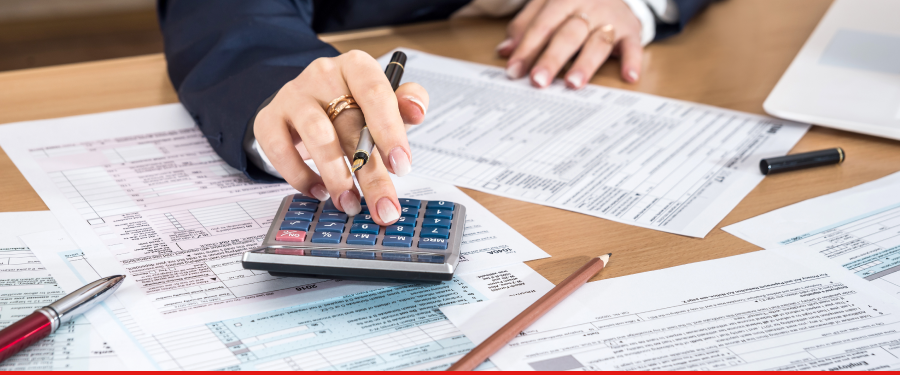 While there are very many things in the world that are currently a source of uncertainty and worry, if you are an expatriate, or otherwise internationally-mobile in some capacity, your residency and tax affairs do not have to be one of them.
While there are very many things in the world that are currently a source of uncertainty and worry, if you are an expatriate, or otherwise internationally-mobile in some capacity, your residency and tax affairs do not have to be one of them.
We will examine the benefits of obtaining tax residence and a tax residency certificate in the United Arab Emirates, as well as look at the avenues that tax resident status can open up for those who choose to base their economic and familial affairs in the region.
But first, a brief overview of the Emirati tax system
As you might already know, the UAE is a Gulf nation that consists of seven emirates that are Abu Dhabi, Ajman, Dubai, Fujairah, Ras Al Khaimah, Sharjah, and Umm Al Quwain. Dubai is perhaps the most well-known of these. Not only does Dubai benefit both from a modern and highly-adaptive business environment and an influential culture of infrastructure investment, it also offers an attractive tax system for businesses and individuals alike.
Although the UAE imposes a theoretical 55% corporate income tax on permanent establishments of non-resident businesses, this regulation is not enforced in practice, and only companies subject to taxation in Dubai are those in hydrocarbons and branches of foreign banks. The tax system is a territorial one, meaning that only applicable income sourced from the emirate is taxable by the authorities there, and no withholding taxes are generally payable. Property taxes can, however, be imposed, at a rate of 5% on leases of residential property, in all of the emirates other than Abu Dhabi. Property sales or purchases, meanwhile, face a 4% tax (with liability to pay split equally between buyer and seller).
There are no individual income taxes imposed, although goods deemed harmful to health (such as alcohol, tobacco products and sugary soft drinks) face high excise taxes. The UAE also imposes a value-added tax (VAT) of 5% on the majority of goods and services, although there are, of course, a number of exemptions.
How do I get tax residence in Dubai and the UAE?
Based on the previously-outlined attractiveness of the tax system, along with the country’s relative stability within the region and its role as a potential gateway to a robust national and regional market, we can see that obtaining tax residency in the UAE could be a desirable course of action for a business-minded expatriate, or of course a business-minded businessperson.
However, the first step to gaining a tax residency certificate in the UAE is to become a resident.
You must first initially get a visa upon arriving in the UAE if you are from a country where this is possible. If you are from a country or region that cannot do so (you can access the list on the UAE government website), you must secure an entry permit in advance. There is a significant amount of overlap between these two types of entry permits concerning the purpose of travel/entry to the jurisdiction. Permitted reasons include business, tourism, study, medical reasons (or acting as a companion for a person travelling to receive medical treatment in the UAE), retirement, or transit through the region (for visas) and tourism, transit or work purposes (in terms of entry permits).
UAE Residency categories
In terms of considering which type of residence in the United Arab Emirates is most appropriate to the circumstances outlined above, briefly, the kinds of residence available are as follows:
- Employment by a firm based in the UAE (in this instance, the application will usually be submitted and sponsored by the business in question).
- Employment by the government (likewise, but with the application sponsored by the government employer).
- Investment in a business in the UAE (with the investor, or a service provider of their choice to apply, under the name of the company in question).
- Investment in property in the UAE.
- University student application (with the University sponsoring the application).
- Retired resident application.
- Dependent application (to be sponsored by the principal applicant, from one of the categories listed above).
Once you obtain a visa or entry permit, you must secure an Emirates ID card. The Federal Authority for Identity and Citizenship issues these cards and you are required to apply to make the UAE your country of tax residence. Among other services, the Emirates ID card permits the holder to:
- Receive government services
- Travel between GCC countries; and
- Vote in elections.
After all this, you might be wondering about the implications of becoming a UAE tax resident when it comes to double taxation and CRS. Or you might be asking about the capital gains tax for non-residents. We will go over the particulars of the next steps in the process, like making a request for a letter for the tax residency certificate in the following article in this series. Whilst you stay tuned for the conclusion, don’t hesitate to contact our team of tax residency experts today.
Written by
Adrian Oton

CEO, Europe Emirates Group




